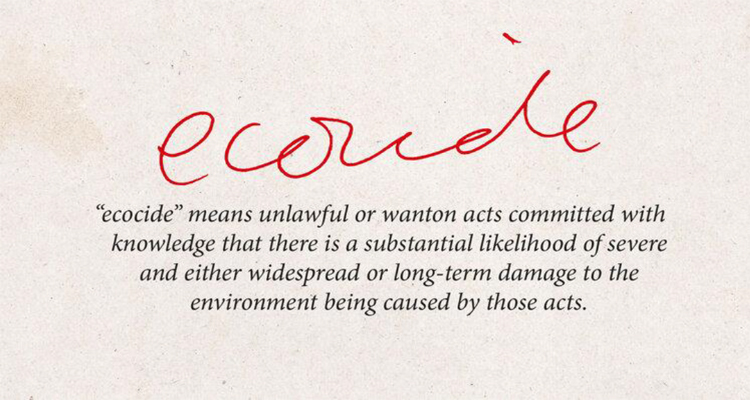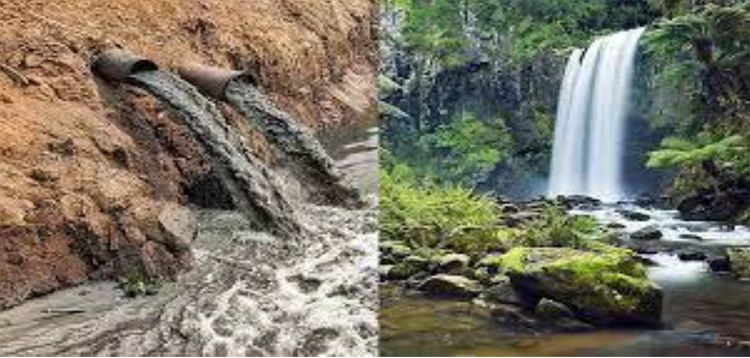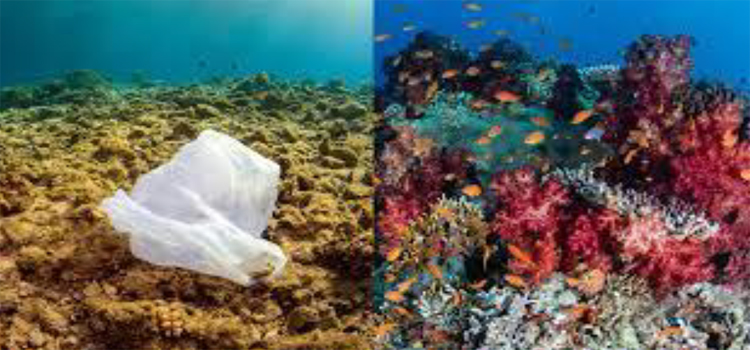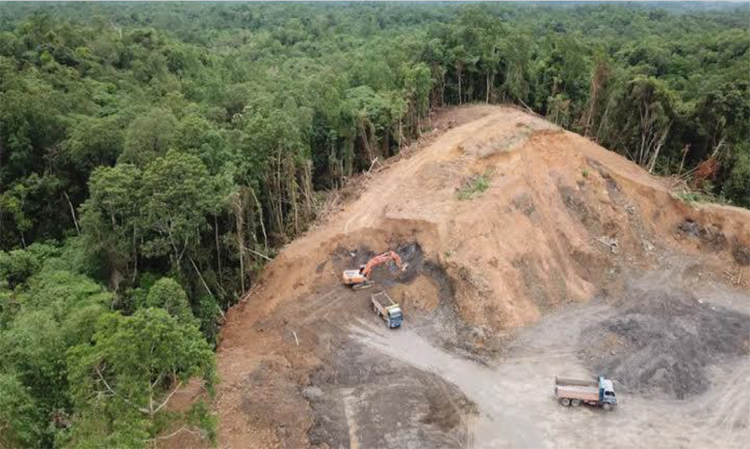|
|

|
  
Feature
Update 2021/7/15
Law
THE FIFTH CRIME – CREATING A LEGAL PRECEDENT FOR PROSECUTING ECOCIDE
By Suzanne Forcese

“Although the world’s 7.6 billion people represent only 0.01% of all living things by weight, humanity has already caused the loss of 83% of all wild mammals and half of all plants. The current rate of extinction is tens to hundreds of times higher than the average over the past 10 million years – and it is accelerating. Current production and consumption patterns, land use and urbanization, population dynamics, trade, industry and governance models underpin this loss, calling for a radical reset of humanity’s relationship with Nature.” --World Economic Forum New Nature Economy Report 2020
An expert drafting panel of 12 highly renowned International and Criminal Lawyers, recently convened by the Stop Ecocide Foundation in November 2020, has concluded six months of deliberations over a legal definition of Ecocide as a potential crime that could sit alongside War Crimes, Genocide, Crimes Against Humanity, and the Crime of Aggression.
WATERTODAY spoke with Lisa Oldring, law and policy advisor to the Canadian branch of the Stop Ecocide Foundation.

Grounded in 20 years of practice with the United Nations and other international human rights and humanitarian law, Lisa Oldring is a principal author of UN reports on global surveillance practices and the right to privacy; human rights and counter-terrorism; the use of force within and outside armed conflict; and other rule of law issues.
Currently focused on human rights and climate accountability, Oldring told WT, “It’s hard for me to think of a more pressing issue. The very life support systems of Earth are being threatened and the most marginalized communities face the most harm.”
Enshrining ecocide in law is one of a range of emerging legal approaches to defend the natural world – alongside passing “Rights of Nature” legislation which recognizes ecosystems’ right to exist a living being that can be named as injured parties in litigation.
These approaches draw on Traditional principles espoused by Indigenous communities who view the living world as a network of intertwined relationships.
“The panel summoned broad inputs from a wide range of perspectives, including the Indigenous to reach a consensus that is balanced.”

“The time is right to harness the power of International Criminal Law to protect our global environment.” -- Philippe Sands QC, Professor, University College London/Barrister, Matrix Law (UK/France/Mauritius) Co-Chair of the Independent Expert Panel
Stop Ecocide International, co-founded in 2017 by barrister and legal pioneer the late Polly Higgins and current Executive Director JoJo Mehta, promotes and facilitates steps towards making ecocide a crime at the International Criminal Court (ICC) in order to prevent the devastation of Nature and so protect the future of life on Earth.

“Ecocide, committed repeatedly over decades, has created the climate and ecological emergency that we now face.” -- Stop Ecocide website
Stop Ecocide International Statement to the 19th Session of the Assembly of States Parties to the Rome Statute of the International Criminal Court, December 2020, delivered by Jojo Mehta, Chair of the Stop Ecocide Foundation and Co-founder of Stop Ecocide International Watch Video Here
“The notion that has been raised for many years,” Oldring says “is founded on existing law. It would build on the existing crime of severe damage to the environment during armed conflict, while reflecting the fact that today, most severe environmental damage occurs during times of peace, a situation that currently falls outside the jurisdiction of the ICC. This definition of ecocide offers the States Parties to the Rome Statute the opportunity to meet current challenges.”
How do we make ecocide an International Crime?
“Right now, the Rome Statute of the International Criminal Court lists four crimes: Genocide, Crimes Against Humanity, War Crimes, and the recently added Crimes of Aggression.
“The Statute can be amended to add a fifth crime – Ecocide. Unlike suing and fining corporations (who simply budget for this possibility), making ecocide a crime creates an arrestable offence. It makes those individuals who are responsible for acts or decisions that lead to severe environmental harm liable to criminal prosecution.”

50 years ago in Washington D.C., the biologist Arthur Galston used the word ‘ecocide’ at the 1970 Conference on War and National Responsibility. The context of this first recorded usage was an attempt to ban it internationally. In 1972, Swedish Prime Minister Olof Palme predicted our current situation in a speech at the UN conference on the Human Environment. In the 80’s, the Sub-Commission on the Promotion and Protection of Human Rights commissioned the Whitaker Report to consider “adverse alterations, often irreparable to the environment through nuclear explosions, chemical weapons, serious pollution, acid rain, or the destruction of the rain forest – which threaten the existence of entire populations, whether deliberately or with criminal negligence." When the ICC came into effect as a body in 1998, ecocide almost made the list of the international crime categories on the Rome Statute.
“The rapid escalation of climate change and threats to biodiversity as well as the disproportionate impact on marginalized populations has amplified the call to action. The timing is now right for the International Community,” Oldring adds.
To add ecocide as a new crime to the Rome Statute, the panel recommends the following amendments:
Concerned that the environment is daily threatened by severe destruction and deterioration, gravely endangering natural and human systems worldwide, the crime of ecocide means unlawful or wanton acts committed with knowledge that
there is a substantial likelihood of severe and either widespread or long-term damage to the environment being caused by those acts.
- “Wanton” means with reckless disregard for damage which would be clearly excessive in relation to the social and economic benefits anticipated;
- “Severe” means damage which involves very serious adverse changes, disruption or harm to any element of the environment, including grave impacts on human life or natural, cultural or economic resources;
- “Widespread” means damage which extends beyond a limited geographic area, crosses state boundaries; or is suffered by an entire ecosystem or species or a large number of human beings;
- “Long-term” means damage which is irreversible or which cannot be redressed through natural recovery within a reasonable period of time;
- “Environment” means the earth, its biosphere, cryosphere, lithosphere, hydrosphere and atmosphere, as well as outer space.
What happens next?
At the annual assembly in December 2021, States Parties which have ratified (officially agreed to) the Rome Statute of the International Criminal Court will vote that the amendment be considered.
There are 123 States Parties. Notably, The United States, China, and India are not States Parties.
For the amendment to be adopted into the Statute at least 2/3 majority of States Parties (82/123) must be in favour. This is likely to take place at a special Crime Review Conference, where the final text of the amendment will be discussed and agreed amongst States Parties.
States Parties can then ratify and must enforce the law in their own country one year later.
This concluding step instills the law with considerable power as it allows any ratifying nation to arrest a non-national on its own soil for an act of ecocide
committed elsewhere, thereby extending its reach to the United States, China and other non-member states and shrinking the space for big polluters to operate.
“Although it will take a number of years for this to become law,’ Oldring says, the process is significant. Ultimately it is creating space to prevent further damage to the environment and creating space for solutions.”
Given its potential impact down the line, financiers and insurers may start to avoid dangerous investments. “It will also encourage the creative start-ups of clean technology.”
“Harming Nature will begin to feel the same as harming human beings. This will help us to grasp the fact of our connection with the natural living world. This reality is inescapable. Without a healthy Earth, there can be no healthy human beings, as the recent pandemic has shown us, and as indigenous cultures around the world already know. This law creates the bridge to a liveable world.” -- Stop Ecocide website
suzanne.f@watertoday.ca
|
|
|
Have a question? Give us a call 613-501-0175
All rights reserved 2026 - WATERTODAY - This material may not be reproduced in whole or in part and may not be distributed,
publicly performed, proxy cached or otherwise used, except with express permission.
|
| |